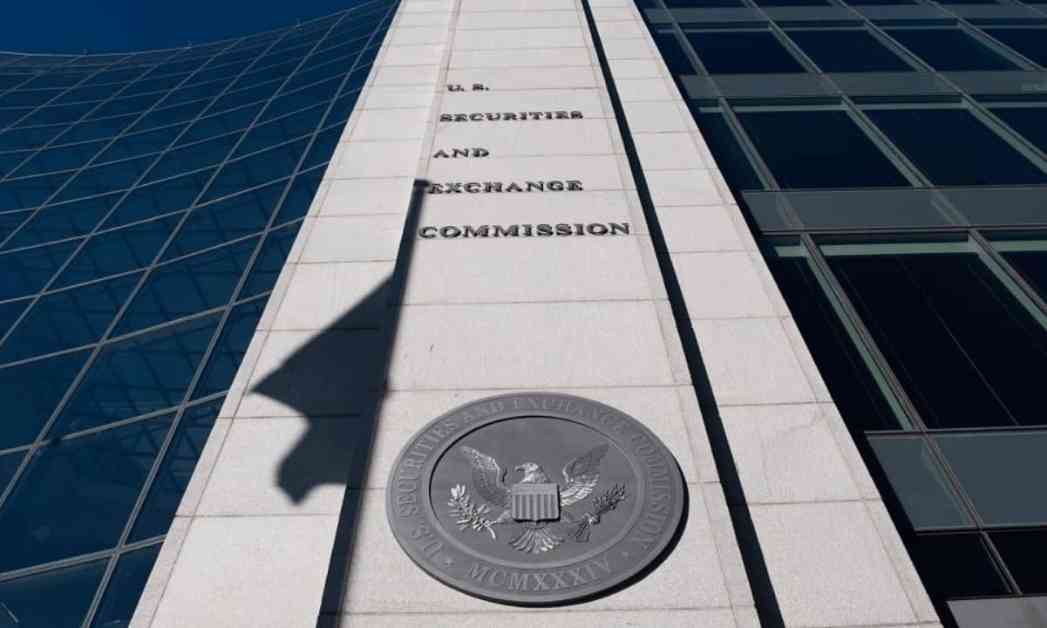Regulatory Confusion: GOP Urges SEC to Revoke ‘Disastrous’ SAB 121
Amid growing concerns over the Securities and Exchange Commission’s (SEC) handling of crypto custody regulations, a group of Republican lawmakers, led by Rep. Patrick McHenry and Sen. Cynthia Lummis, have called on the agency to rescind Staff Accounting Bulletin No. 121 (SAB 121). The GOP legislators have criticized the SEC for issuing the guidance without proper consultation with key regulators, bypassing formal rulemaking processes, and creating confusion that could expose consumers to increased risks in the crypto market.
Critique of SAB 121
In a letter addressed to SEC Chair Gary Gensler, the lawmakers emphasized their opposition to SAB 121, pointing out that the rule requires digital asset custodians to recognize a liability and hold a corresponding offset on their balance sheets based on the fair market price of their crypto assets. This departure from traditional accounting practices has raised concerns among critics, who argue that it could lead to inaccurate reflections of custodians’ legal and economic obligations, potentially putting consumers at greater risk.
The Republicans contend that rescinding SAB 121 is the most appropriate course of action and well within the SEC’s authority. They argue that there is precedent for revisiting staff accounting bulletins and that the SEC should reconsider its approach to regulating crypto custody to ensure transparency, consistency, and investor protection in the market.
Closed-Door Deals
The GOP legislators have also raised questions about confidential consultations between SEC staff and select financial institutions, where exemptions from reporting requirements were granted on a case-by-case basis. This practice of allowing exemptions without following the formal rulemaking process has drawn criticism from lawmakers, who argue that it undermines transparency and fairness in the application of regulatory standards across different institutions.
One of the beneficiaries of these closed-door deals is BNY Mellon, which reportedly received an exemption from certain requirements of SAB 121, allowing the financial institution to bypass some of the more burdensome provisions of the rule. This special treatment for BNY Mellon has sparked concerns among lawmakers about the lack of consistency in applying regulatory standards and the potential for cherry-picking winners and losers in the crypto custody space.
During a public hearing in Wyoming, Chris Land, general counsel to Sen. Lummis, revealed that the SEC had granted BNY Mellon a variance to move forward with its crypto custody business despite facing challenges with compliance under SAB 121. This selective granting of exemptions has raised questions about the SEC’s commitment to ensuring a level playing field for all market participants and maintaining investor protections through consistent application of regulatory standards.
The lawmakers have expressed concerns that the SEC’s approach to regulating crypto custody may undermine investor confidence and prevent the enhanced disclosures necessary for informed decision-making in the market. By allowing exemptions on a case-by-case basis and bypassing formal rulemaking processes, the SEC risks creating a regulatory environment that favors certain institutions while potentially disadvantaging others, leading to inconsistencies in compliance and reporting standards across the industry.
Subheading 1: GOP Calls for Repeal of SAB 121
In their letter to SEC Chair Gary Gensler, the GOP lawmakers have called for the repeal of SAB 121, citing concerns about the rule’s impact on digital asset custodians and the potential risks it poses to consumers in the crypto market. By urging the SEC to rescind the guidance, the legislators hope to address the confusion and inconsistencies created by SAB 121 and ensure a more transparent and equitable regulatory framework for crypto custody.
Subheading 2: Lack of Transparency in Regulatory Process
The closed-door consultations between SEC staff and select financial institutions, which resulted in exemptions from reporting requirements under SAB 121, have raised questions about the transparency and fairness of the regulatory process. Lawmakers have criticized the SEC for allowing exemptions to be granted on a case-by-case basis, without following formal rulemaking procedures or providing clear guidelines for compliance, creating a regulatory environment that lacks transparency and consistency in applying regulatory standards.
Subheading 3: Impact on Investor Protections and Market Integrity
The selective granting of exemptions from SAB 121 requirements to certain institutions, such as BNY Mellon, has raised concerns about the potential impact on investor protections and market integrity. By allowing exemptions without following formal rulemaking processes or ensuring consistency in applying regulatory standards, the SEC risks undermining investor confidence and creating a regulatory environment that favors certain players in the market while potentially disadvantaging others, leading to inconsistencies in compliance and reporting standards across the industry.

